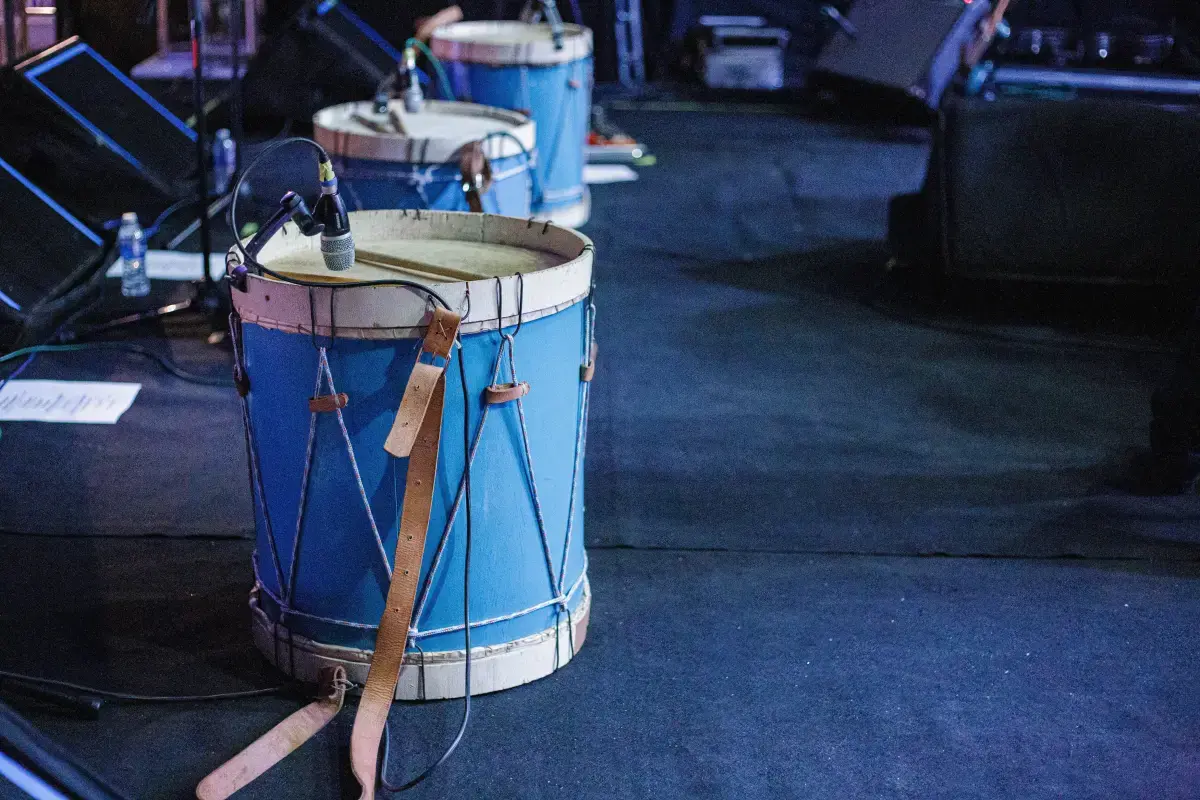
Accompanist Job Description
What is a Accompanist Professional?
A singer or instrumentalist who provides musical accompaniment to a performer, or to the singing or playing of a piece of music, is called an accompanist. The word "accompaniment" comes from the Latin prefix com- ("with") + the verb pendĕre (to weigh down, hang, or cause to bend). An accompanist is thus someone who hangs with or goes along with the singer or instrumentalist. An accompaniment may be played on a piano, guitar, harp, synth etc., and must follow the melody and harmony lines (chords) of a song as well as maintain rhythm; in short, it creates fullness of sound by providing a background texture for the lead instrument(s) or voice(s). The degree to which this is accomplished will depend on factors such as training, ability, imagination/creativity, interpretation (of both the written score and chord symbols), and most importantly experience. In jazz bands and larger ensembles (orchestra, symphony orchestra), multiple keyboardists might play different parts of an ensemble arrangement using portable electronic keyboards; in rock bands (particularly those using synthesizers), one person might play all keyboard parts using several different instruments during the course of a performance. And in some pop groups/artists touring bands ("tribute" acts that recreate live concerts by famous original artists from recordings), there will often be two (or more) musicians onstage playing identical keyboard parts from full scores following along with changes made by the lead vocalist/guitarist.

What does a Accompanist Expert do?
The term "accompanied", when used as a verb ("to accompany"), generally refers to providing instrumental support for solo vocal pieces; when accompanying singers on stage—in addition to supplying harmonic filling-out around melody lines—the pianist also handles other important Singer-Friendly Tasks such as cueing harmony vocal entries & watching for sign language cues from ASL interpreters hired by venues Instrumentalists who routinely provide accompaniment include: acoustic & electric guitarists (playing chords while following changes made by soloists); bass guitar players & double bassists ((also called upright bass players); drummers; percussionists; violinists & cellists; wind instrument players such as flautists (& piccolo players), oboists (& English horn players), clarinetists (& bass clarinetists), saxophonists (& baritone saxophonists), trumpet players (& cornet players) & trombonists;Keyboard Players ((including pianists,) organists,)& Harp Players.) Vocal coaches & choral conductors are usually considered Class A Accompaniers because their main focus is helping singers prepare for public performances where they sing without sheet music reading assistance--and therefore must know how songs go without being able to refer back to printed lyrics very often if at all during actual performances. Most professional vocal coaches are also skilled sight readers themselves so that they can help students learn new pieces faster by starting off song rehearsals reading through together then lightly playing chords while student sings melody line then working up towards fuller rehearsal readings where coach accompanies singer singing entire song while looking at printed score only occasionally making sure theyre still on track.)

What are the Skills of a Accompanist?
A good accompanist needs a great deal of skill and experience. They need to be able to play their instrument at a high level, sight-read well, and have a large repertoire. They also need to be able to adapt to different styles of music and comfort levels on the fly. Great accompanists make it look effortless, but it is anything but! The first and most important skill an accompanist needs is to be able to play their instrument at a high level. This means having excellent technique, tone, and intonation. They should also be able to play with a variety of dynamics and articulations. The better they can control their instrument, the better they will be able to provide support for the singer or instrumentalist they are accompanying. Sight-reading is another essential skill for an accompanist. Most musical theatre auditions will include some sight-reading, so it is important that they can quickly and accurately read through new music. They should also be comfortable transposing into different keys on the fly, as this may be required during an audition or performance.

What makes an Expert Accompanist?
An accompanist should also have a large repertoire of music in various styles. They should know how to easily switch between different genres, tempos, and feelings. Having a diverse repertoire shows that they are adaptable musicians who can provide exactly what is needed for any given song or situation. Last but not least, great accompanists need to have superb people skills. They need to be able to work well with other musicians, understand each singer’s vocal range and style, and adjust their playing accordingly. They must always remain calm under pressure and be able to think on their feet in case of any unforeseen changes or challenges during a performance. All of these skills and experience come together to create great accompanists who can truly elevate any musician or singer they are performing with. If you possess these qualities, then you have what it takes to be a successful accompanist!

What level of Experience & Qualifications are required to be a Accompanist?
Industry experience: The candidate should have a minimum of three years of professional accompaniment experience, preferably in the same genre as the intended performance. This includes playing with other musicians and performing in live settings. 2. Training: The candidate should be trained on a variety of instruments, including piano, guitar, bass, drums, strings and woodwinds. A good understanding of music theory is also essential for any accompanist to understand how to best accompany another performer’s lead line or melody. 3. Qualifications: Most employers require that an accompanist has obtained a degree or diploma from an accredited institution specializing in music education such as Berklee College of Music or Julliard School for Music Education in order to demonstrate their knowledge and commitment to the field . 4. Education: An expert accompanist must possess both theoretical and practical knowledge about music composition and arrangement techniques so they can properly support soloists during performances . It is expected that they will have studied classical repertoire extensively as well as popular styles like jazz , blues , rock , etc., if applicable . They should also be familiar with musical notation systems used by various genres so they can easily sight read new pieces when needed .

What is the Salary of a Accompanist?
For a junior accompanist, salary expectations typically range from minimum wage to $15 an hour. For more experienced and senior-level accompanists, salaries can be higher depending on the individual’s experience level and skill set. Generally speaking, salaries for these professionals are often in the range of $20-$50 per hour; however, those with extensive training or years of experience may command higher rates. Additionally, some accompanists have specialized skills that require additional compensation such as playing complex pieces or accompanying multiple instruments simultaneously which can also increase their earning potential.

What are the Working Conditions for a Accompanist?
The working conditions for an accompanist can vary depending on the type of job they are hired to do. Generally speaking, an accompanist will be expected to provide musical support and accompaniment during rehearsals or performances with singers or instrumentalists. They may also work in a recording studio as part of a larger ensemble. Accompanists typically report to either the conductor or music director, and their duties may include playing live music from sheet music, providing sight-reading skills, improvisation abilities and knowledge of various musical styles. Accompanists must have good communication skills in order to coordinate with other musicians during rehearsals and performances. Additionally, they should be able to take direction well from directors when necessary. In terms of hours worked by an accompanist, it depends largely upon the performance schedule but generally ranges between 10-25 hours per week depending on availability and demand for services. The salary expectations for this role can range widely based upon experience level; however most professional accompanists make between $15-$30 per hour plus tips if applicable (depending upon the venue). Benefits such as health insurance or retirement plans are not usually covered unless specified in a contract agreement prior to accepting employment.

What are the roles and responsibilities of a Accompanist?
Arrive on time for rehearsals and performances.
Be prepared to play the music as written, or make appropriate changes when requested by the performer or conductor.
Follow the performer’s or conductor’s tempo, dynamics, and other interpretive choices.
Stay alert during performances and be ready to make emergency corrections if necessary.
Balance the sound of your instrument with that of the performer(s), if accompanying more than one person, or blend in with an ensemble.
Make sure you can be heard by the performer(s) over any amplification that may be used.
Know the capabilities of your instrument and how it will affect your accompaniment choices; for example, a grand piano will have a much different sound than an upright piano or a synthesizer keyboard.
Choose appropriate voicings and registers when accompanying singers so as not to cover their voices or overshadow them with your sound.
Consider using a microphone if your instrument is particularly loud in order to avoid Feedback (sound reinforcement) issues between you and the performers/speakers on stage with you
Use appropriate volume levels – too loud and you will drown out the performers; too soft and they will have difficulty hearing you which can result in people getting off-time
If there are multiple rehearsal sessions prior to a performance, use good judgment in deciding how much accompaniment is needed at each session – too little might not give adequate help to prepare, while too much might lead to “performance fatigue” where people get tired of hearing you play
Act professional at all times
Be flexible - things change, such as venues (size/acoustics), artist cancellations, etc., so being able to adjust on-the-fly is key
Have knowledge of various genres and styles of music
Read music well - this is critical since most accompanists do not memorize their parts
improvise
take direction well
create interesting parts that complement what is being played or sung
manage page turns (for instrumentalists playing from sheet music)
handle cueing entrance/exits for other instruments/performers

Where can I find Accompanist jobs?
- Create a profile on gigexchange and promote your Accompanist skills to advertise you are Open to New Work Opportunities
- Ensure your Resume (or CV), or online work profile is up to date and represents your skills and experience. Ensure your reputation reflects your ability & attitude.
- Apply for Accompanist Jobs advertised on gigexchange.
- Practise Accompanist interview techniques to ensure you represent your personality and ability succinctly and confidently.
- Accept the job offer if the salary meets your expectations and the employer mission and purpose reflects your core values.
Jobs
What are the best job boards for Instrumentalist jobs?

How can I hire Accompanist staff online for my business?
The best job board for recruiting Accompanist experts is gigexchange.com. Advertise full-time, part-time or contract jobs to find, hire & recruit trusted, experienced and talented Accompanist candidates near you.

Are Accompanist roles in demand in 2026?
Accompanist experts are still in high demand in 2026. If you are an experienced Accompanist or looking to train and become one. The job market is looking strong for Accompanist jobs near me.